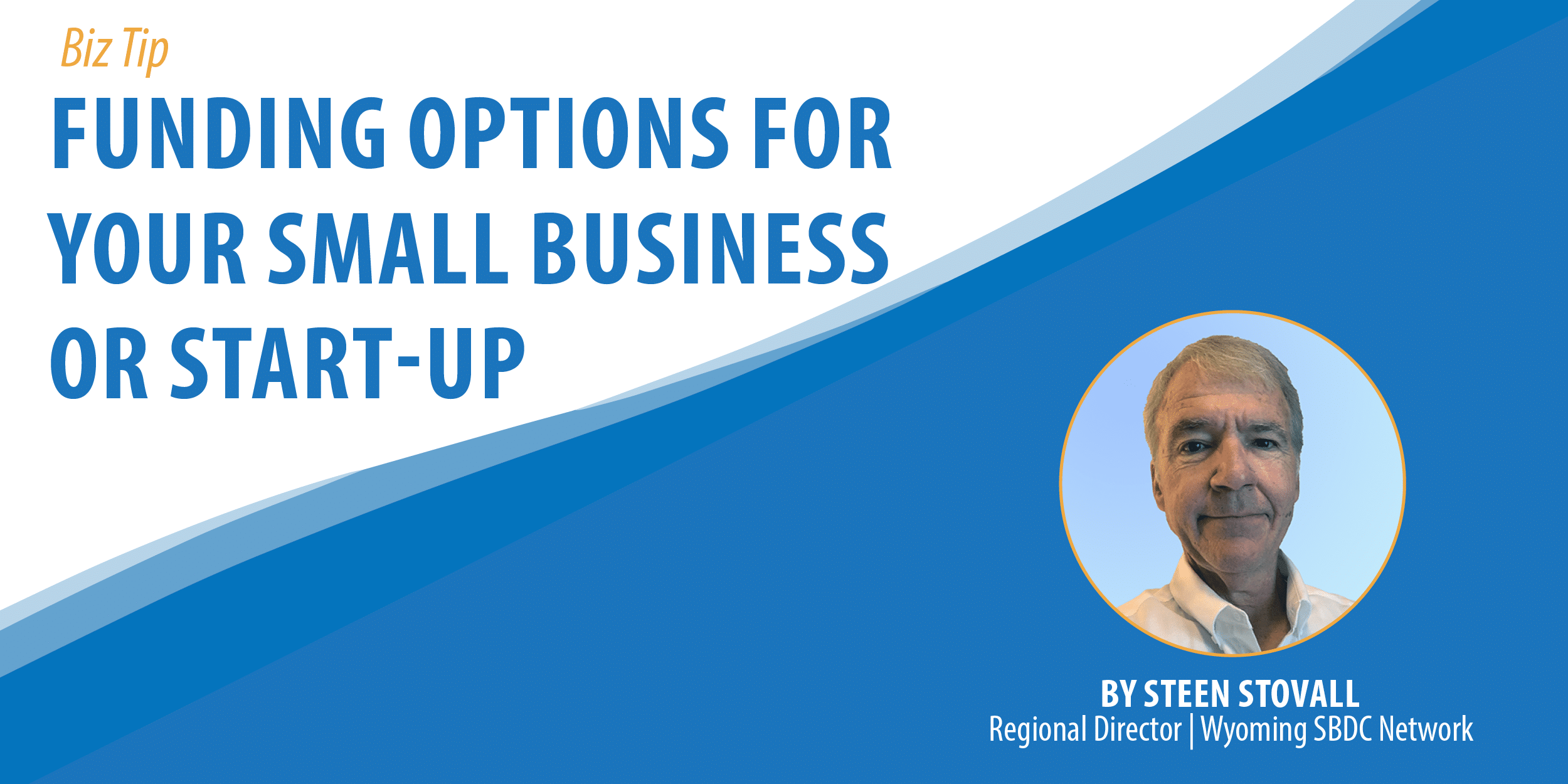Obtaining startup funding for a small business can be particularly elusive — as most traditional business loans require one or more years in business — but that doesn’t mean it’s impossible.
There are a wide variety of funding options available to small business owners. Below you’ll find an overview of seven popular funding solutions with some pros and cons of each.
- Self-funding: Using personal savings or assets to start and grow a business.
| Pros | Cons | |
| · Control.
· Flexibility. · No debt. · No dilution of ownership. · No outside influence. |
· Limited funds.
· Risk. · Limited expertise. · Slow growth. · Personal finances. |
- Business term loans: These are traditional loans that are typically offered by banks and other financial institutions. They are usually used for specific expenses such as equipment purchases or real estate.
| Pros | Cons | |
| · Access to capital for growth and expansion.
· Ability to finance large purchases and investments. · Potential to increase revenue and profitability. · Improved cash flow management. |
· Repayment obligation with interest.
· Potential impact on personal credit score. · Risk of loan default and loss of collateral. · Possible strict loan conditions and requirements. |
- Business lines of credit: These are similar to credit cards and can be used for ongoing expenses such as inventory or working capital.
| Pros | Cons | |
| · Flexibility in usage and repayments.
· Easy access to funds as needed. · Potential to improve cash flow management. · Lower interest rates compared to credit cards. |
· Ongoing interest and fees charged on unused credit.
· Possible requirement of collateral or personal guarantee. · Potential impact on personal credit score. · Repayment obligation and impact on credit utilization ratio. |
- Business credit cards: Obtaining a credit line specifically for business expenses.
| Pros | Cons | |
| · Convenient access to funds for small purchases and expenses.
· Potential rewards and benefits such as cash back, points, or discounts. · Ability to separate personal and business expenses. · Improving business credit history and score. |
· Ongoing interest and fees charged on unused credit.
· Possible requirement of collateral or personal guarantee. · Potential impact on personal credit score. · Repayment obligation and impact on credit utilization ratio. |
- Invoice financing: This type of financing allows a business to borrow money based on their outstanding invoices.
| Pros | Cons | |
| · Quick access to cash tied up in unpaid invoices.
· No need to wait for customer payment to maintain cash flow. · Ability to grow business and take on new projects without cash flow constraints. · Potential to improve relations with suppliers and partners. |
· Costly compared to traditional loans with fees and interest.
· Possible loss of control over debt collection and customer relationships. · Possibility of reducing profit margins due to financing fees. · May need to provide detailed financial information and invoices for approval. |
- Angel investors or venture capital: This is when an individual or firm invests in a business in exchange for equity.
| Pros | Cons | |
| · Access to large amounts of capital for growth and expansion.
· Ability to bring in experienced mentors and industry expertise. · Potential for network and strategic partnerships. · Increased visibility and credibility for the business. |
· Loss of control and decision-making power.
· Potential dilution of ownership and equity. · Strict investment terms and conditions. · Required to give up a portion of future profits and potential exit strategies. |
- Crowdfunding: Raising funds by appealing to a large number of people for small contributions.
| Pros | Cons | |
| · Access to a large pool of potential investors.
· Ability to validate and gauge market interest in a product or idea · Increased visibility and exposure for the business. · Option to raise funds without giving up equity or control. |
· Competition for attention and funding among many campaigns.
· Possible limited reach and potential investor pool. · Potential for campaign to fall short of funding goals. · Possible restrictions on usage of funds raised and requirements for reporting and accountability. |
The key to success is preparation. Be sure you have developed a thorough business plan and firm cash flow projections that lay out the payoff for potential investors or lenders. The Wyoming SBDC Network is the best resource to help you develop these key components. If you’d like to learn more about how to determine the amount of money that is needed to meet your business goals and your best funding options — loans, equity, or a combination, contact your Wyoming SBDC Network advisor today.
Learn more: Register for our February Business Fitness Webinar, “Demystifying Small Business Bank Loans,” to take a more in depth look at one of the possible funding options for your small business! Register here: WyomingSBDC.org/Training
About The Author: Steen has been involved in the small business and workforce development sectors for more than 25 years. A business veteran, he co-founded businesses in the oil, gas, retail, and construction industries. He’s also been involved in the academic sector, teaching classes in entrepreneurship, marketing, management, accounting, and construction planning at numerous colleges and universities. Most recently Steen served as the Interim State Director of the SBDC Network in the U.S. Virgin Islands.




